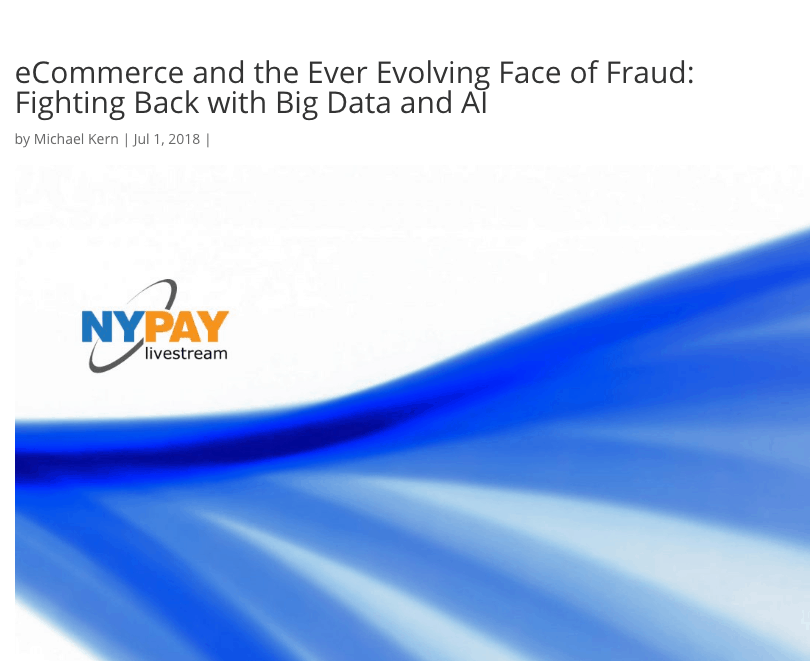Maybe NYPay hosting a roundtable on ecommerce fraud next week at Deloitte’s U.S. headquarters in New York isn’t itself confirmation that retail leaders now recognize that fraud management is a key to providing a memorable customer experience.
We’ll leave that to the agenda for the Tuesday event at Rockefeller Center, which promises to cover the nuts and bolts of fighting online fraud, but also the challenge of balancing the friction caused by fear of fraud and the need to protect an enterprise from digital evil-doers.
The live-streamed discussion, among panelists from retailers, fraud-protection firms, payment companies and Deloitte itself, will tackle the need for retailers to provide fast and accurate order decisions when it comes to fraud. And it will consider the aggravating and expensive problem of incorrectly declining legitimate orders because of suspected fraud.
NYPay is a non-profit that for years has hosted educational events of interest to those who work in and with the payments industry. It’s been trying to for some time to assemble a panel of experts to illuminate the underworld of fraud and point out the ways retailers can protect themselves from what is clearly a growth industry. And really, its timing couldn’t be better.

Ecommerce and the Evolving Face of Fraud
Fraud management in retail has reached a tipping point that is reframing the way retail leaders look at the problem. No longer is fraud management fundamentally about avoiding loss. In today’s world of growing ecommerce and ever-more empowered consumers, retail leaders look at fraud management as a sound way to boost revenue and plump up their profit margins.
Managing fraud is managing customer experience
“Fraud losses, of course, are never desirable,” says Signifyd Vice President of Marketing Stefan Nandzik, an NYPay panelist. “But more and more retailers are realizing that managing fraud in a modern way — automated, with large data sets and constantly learning machines — is the path to eliminating many unnecessary friction points for customers. That turns them into repeat buyers and increases their overall customer lifetime value for enterprise retailers.”
That growing awareness among retailers has lead to a mainstream embrace of a model of fraud protection known as guaranteed fraud protection, the type of protection Signifyd offers. Guaranteed fraud protection frees up merchants to focus on their core businesses and to expand fearlessly into new markets because it comes with the promise that they will be made financially whole for any approved orders that later turn out to be fraudulent.
The model also dramatically reduces false positives — or legitimate orders that are incorrectly declined because of fraud suspicions — because it allows orders that appear fraudulent to be shipped. Shipping those orders has one of two outcomes, both beneficial. Either the order is in fact legitimate, which means the merchant makes a sale. Or the order is in fact fraudulent, which means the guaranteed fraud provider’s machine-learning model learns that such orders are bad, becoming that much better and more accurate. Meanwhile, the merchant is protected by the provider’s 100-percent financial guarantee.
Overriding it all is the idea that by turning to guaranteed fraud protection, the merchant is providing its customers with a better buying experience. No customer wants to face delays caused by cumbersome manual reviews that are common with old-school fraud scoring products. And even worse than delays are orders that are cancelled altogether for fear of fraud by systems that don’t have intelligent machines able to learn and recognize orders that may have troubling attributes but are indeed legitimate.
Guaranteed fraud protection is part of the modern ecommerce tech stack
Machine-learning, guaranteed solutions are the kinds of systems that forward-looking retailers are adding to their ecommerce technology stacks in an effort to off-load operational functions that aren’t in their wheelhouse, so they can concentrate on what is. Kleiner Perkins Partner Mary Meeker recognized the movement in her annual Internet Trends 2018 report.
In the report, Meeker listed the tools that modern retail enterprises need to thrive in an age of digitally native retailers and digital transformation: payment processors, point-of-purchase financing, delivery systems, customer support and fraud prevention. She listed various category leaders, such as Square, Stripe, FedEx, UPS, the U.S. Postal Service and Signifyd as the players driving the trend.
Meeker’s recognition of the guaranteed fraud category was just one more proof point that the model is on the cusp of mainstream adoption.
And the NYPay event’s embrace of the approach to building a better customer experience through modern fraud management solutions only adds weight to the conclusion that the future of successful online retail comes with a whole new way of thinking about fraud management.
Contact Mike Cassidy at [email protected]; follow him on Twitter at @mikecassidy.











